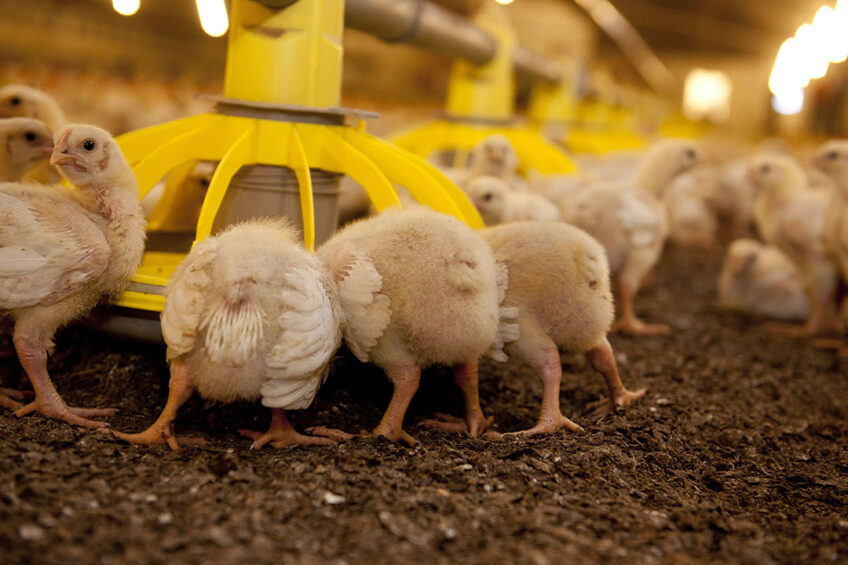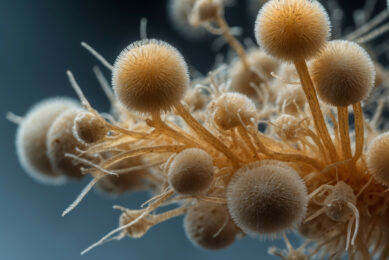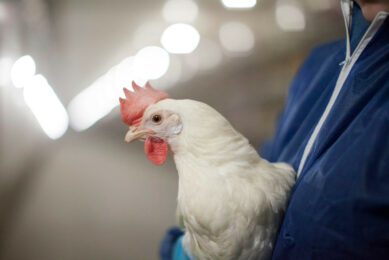5 benefits of quercetin flavonoid in broiler diets

In a recent study, researchers explored the benefits of quercetin in broiler diets.
The broiler industry is using natural additives to improve the growth performance and health of birds as well as to optimise the quality of broiler meat. Of interest are plant extracts such as flavonoids, tannins, saponins and essential oils.
For a long time, the productivity and health of broilers have been significantly impacted by antibiotics as growth‐promoting substances. However, the use of sub‐therapeutic doses of antibiotics in animals is now restricted due to concerns about antibiotic resistance and possible residual effects on human health. As a result of the widespread restrictions on antibiotic growth promoters, researchers have shifted their focus to natural additives as alternatives.
The potential of plant extracts to improve the performance and health of animals has been positively received by consumers. To that end, some plant extract producers such as Ropapharm, which produces essential oils, have taken huge strides to ensure a complete process from seed to the end-product. Studies show that plants and herbs, and their extracts, can modulate feed intake, support healthy microbiota in the digestive tract and have beneficial effects on monogastric animals such as antibacterial, coccidiostat, neuroprotective, anti‐inflammatory and antioxidant capacities.
Supplementing quercetin in broiler diets
Researchers evaluated the impact of graded doses of quercetin in broilers on growth performance, nutrient retention, bird welfare (faecal scores and footpad lesion scores), mineral content, immunity and meat quality. Day-old broilers were allotted to four dietary treatments for 32 days as follows:
- Control diet: no supplement (0% quercetin)
- 3 quercetin diets: basal diet supplemented with – quercetin at 0.02%, 0.04% and 0.06%.
 Growth performance and nutrient digestibility
Growth performance and nutrient digestibility
Compared to the control diet, the researchers found dose-dependent improvements in weight gain and feed intake as the inclusion level of quercetin increased (Table 1). Supplementing quercetin also improved feed utilisation as the feed conversion ratio decreased with increasing levels of the additive. Previous studies reported that the prebiotic effect and antioxidant properties of quercetin can boost the functioning of the pancreas, immune status and digestive enzyme release.
Although the current study did not evaluate the antioxidant factors or prebiotic impacts, the increased growth performance in the quercetin group might be caused by antioxidant capacity and prebiotic properties of quercetin as observed in similar studies
Researchers.
Similarly, in a study published in Poultry Science, researchers found that dietary supplementation of quercetin improves performance by modulating the intestinal environment and improving the antioxidant system in laying hens.
 Protein digestibility
Protein digestibility
Another benefit of quercetin was found in improving dry matter and protein digestibility (Table 1) compared to the unsupplemented diet. As observed in a previous study, the researchers working on the current study attributed the improvement in nutrient digestibility to improved digestive enzyme activity as well as improved feed intake and intestinal health status of the broilers. A study published in Animal Bioscience found prebiotic effects of quercetin in broilers as observed through higher counts of lactic acid bacteria in diets supplemented with the additive.
Study in growing pigs
Indeed, phytogenic additives provide a healthy and functional intestine in monogastric animals, which may, in turn, enhance nutrient digestibility. A study in growing pigs found that dietary inclusion of quercetin in diets of pigs challenged with Escherichia coli lipopolysaccharide tended to increase dry matter and protein digestibility, which was due to the change in the gut microbiota causing less systemic inflammation and better metabolic outcomes.
 Enhancing mineral content
Enhancing mineral content
Various parameters have been used as indicators of bone mineralisation, including tibia ash, toe ash and radiography. However, tibia ash is more sensitive to the amount of available calcium and phosphorus, as well as other ingredients in the diet. In the current study, the inclusion of quercetin supplement (0-0.06%) linearly increased tibia ash in broilers, suggesting improvements in mineral content, especially the bioavailability of calcium and phosphorus. The researchers highlighted the fact that variations in outcomes observed in other studies may be due to animal breed, dosage and the plant source of the quercetin flavonoid.
 Immune capacity and meat quality
Immune capacity and meat quality
In the current study, supplementation with quercetin resulted in higher weights of immune-related organs, that is, the Bursa of Fabricius, the spleen, and the liver, indicating improvements in the immunity of the broilers. Improvement in immunity was related to the prebiotic properties of quercetin as prebiotics are known to promote the growth of positive bacteria, increase nutrient absorption and modulate the immune response.
In a similar broiler study, quercetin had strong bacteriostatic effects as it prevented the proliferation of harmful bacteria by reducing bacterial protein synthesis. In laying hens, the population of Bifidobacterium improved while the number of overall aerobic bacteria and enterococci decreased as quercetin levels increased.
The supplementation of quercetin resulted in improvements in meat quality (a higher breast muscle yield, an increase in meat colour lightness and redness, and a decrease in drip loss).
 Supporting the welfare of birds
Supporting the welfare of birds
Footpad dermatitis greatly impacts the welfare of chickens, productivity and selling prices. A study published in the Animals journal showed that the inclusion of plant extracts reduces the incidence of footpad inflammation in broilers. In the current study, quercetin supplementation supported or maintained the welfare of birds as there were no negative changes in both the faecal scores and footpad dermatitis scores compared to the unsupplemented diet.
Quercetin: An important functional additive
It was concluded that the inclusion of quercetin flavonoid in broiler diets improves growth performance, nutrient digestibility, immune response and meat quality while maintaining the welfare of birds. The antibacterial, anti‐inflammatory and antioxidant capacities of quercetin suggest that the flavonoid might be an important functional additive in the production of broilers.











